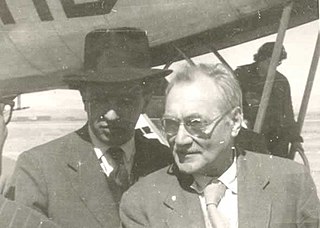A Quote by Rainer Maria Rilke
It is not inertia alone that is responsible for human relationships repeating themselves from case to case, indescribably monotonous and unrenewed: it is shyness before any sort of new, unforeseeable experience with which one does not think oneself able to cope. But only someone who is ready for everything, who excludes nothing, not even the most enigmatical will live the relation to another as something alive.
Related Quotes
The moral case is, people say, "Oh they're not ready for democracy," but that's something someone who lives in a democracy would say about someone who doesn't live in a democracy. Well, if democracy is the highest form of human potential, then it can't be true for us and not for them. But, the practical case is democracies don't invade their neighbors. Democracies don't traffic in child soldiers. Democracies don't harbor terrorists as a state policy. So there's a reason to have more democratic states.
Today it is not alive. What, then, is this experience of humanism? With the above survey I have tried to show you that the experience of humanism is that — as Terence expressed it — “Nothing human is alien to me”; that nothing which exists in any human being does not exist in myself. I am the criminal and I am the saint. I am the child and I am the adult. I am the man who lived a hundred thousand years ago and I am the man who, provided we don't destroy the human race, will live hundred thousand years from now.
What is magic? In the deepest sense, magic is an experience. It's the experience of finding oneself alive within a world that is itself alive. It is the experience of contact and communication between oneself and something that is profoundly different from oneself: a swallow, a frog, a spider weaving its web.
A common measure of poverty is how much money you have in relation to other people - that is useful as far as it goes, but that excludes the case of, say, a hunter in the rainforest who has no money but is not poor. And there can be a number of people with money but who can consider themselves unwanted or invisible or estranged from society.
S and M is only the expression in the bedroom of an oppressive-submissive relation which can happen also in the kitchen or at the factory, can happen between people of any gender. There is obviously something titillating about these relationships, but it isn't the sexual components that makes them ugly, they're uglier elsewhere. Nothing sexual is depraved. Only cruelty is depraved, and that's another matter.
He misses the feeling of creating something out of something. That’s right — something out of something. Because something out of nothing is when you make something up out of thin air, in which case it has no value. Anybody can do that. But something out of something means it was really there the whole time, inside you, and you discover it as part of something new, that’s never happened before.
Most men appear to think that the art of despotic government is statesmanship, and what men affirm to be unjust and inexpedient in their own case they are not ashamed of practicing towards others; they demand just rule for themselves, but where other men are concerned they care nothing about it. Such behavior is irrational; unless the one party is, and the other is not, born to serve, in which case men have a right to command, not indeed all their fellows, but only those who are intended to be subjects; just as we ought not to hunt mankind, whether for food or sacrifice . .
Whenever there is a reaching down into innermost experience, into the nucleus of personality, most people are overcome by fear and many run away. . . The risk of inner experience, the adventure of the spirit, is in any case alien to most human beings. The possibility that such experience might have psychic reality is anathema to them.
There is a case for saying that the creation of new aesthetic forms has been the most fundamentally productive of all forms of human activity. Whoever creates new artistic conventions has found methods of interchange between people about matters which were incommunicable before. The capacity to do this has been the basis of the whole of human history.





































